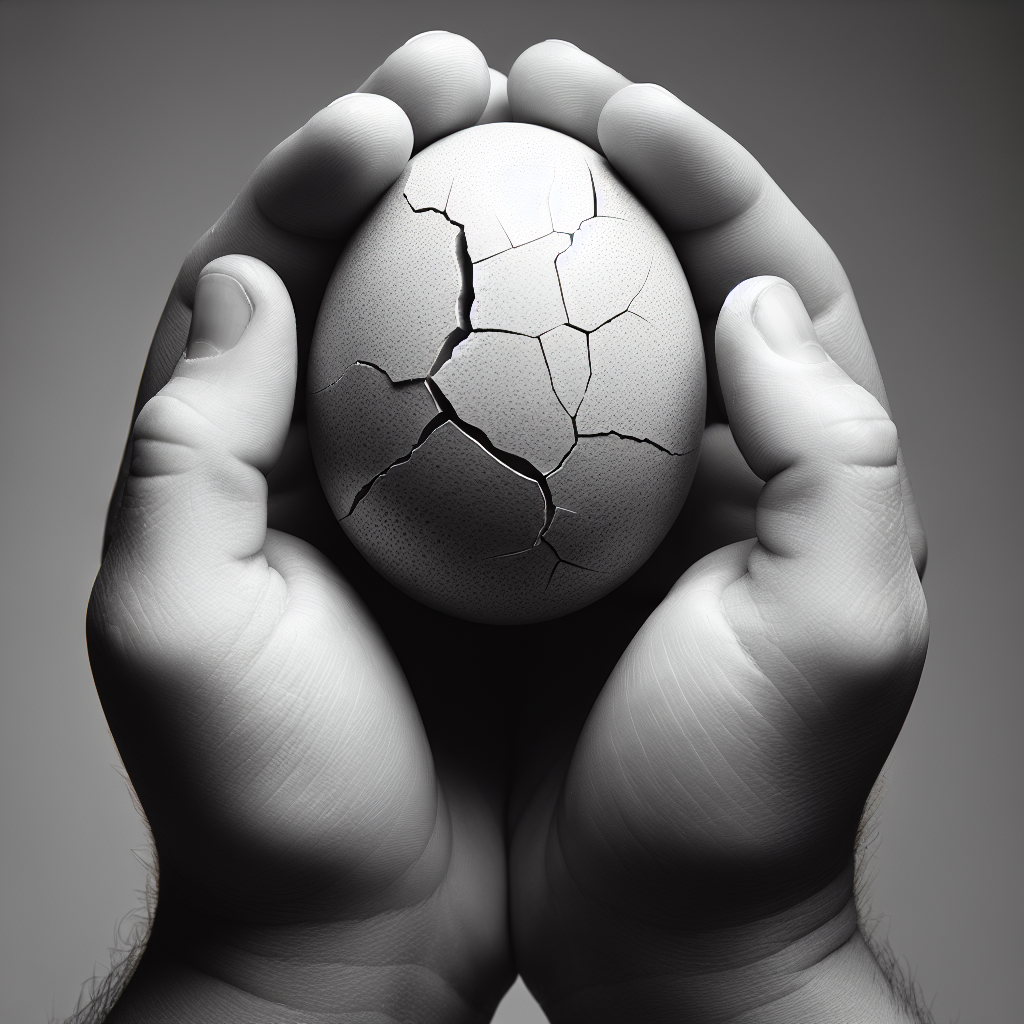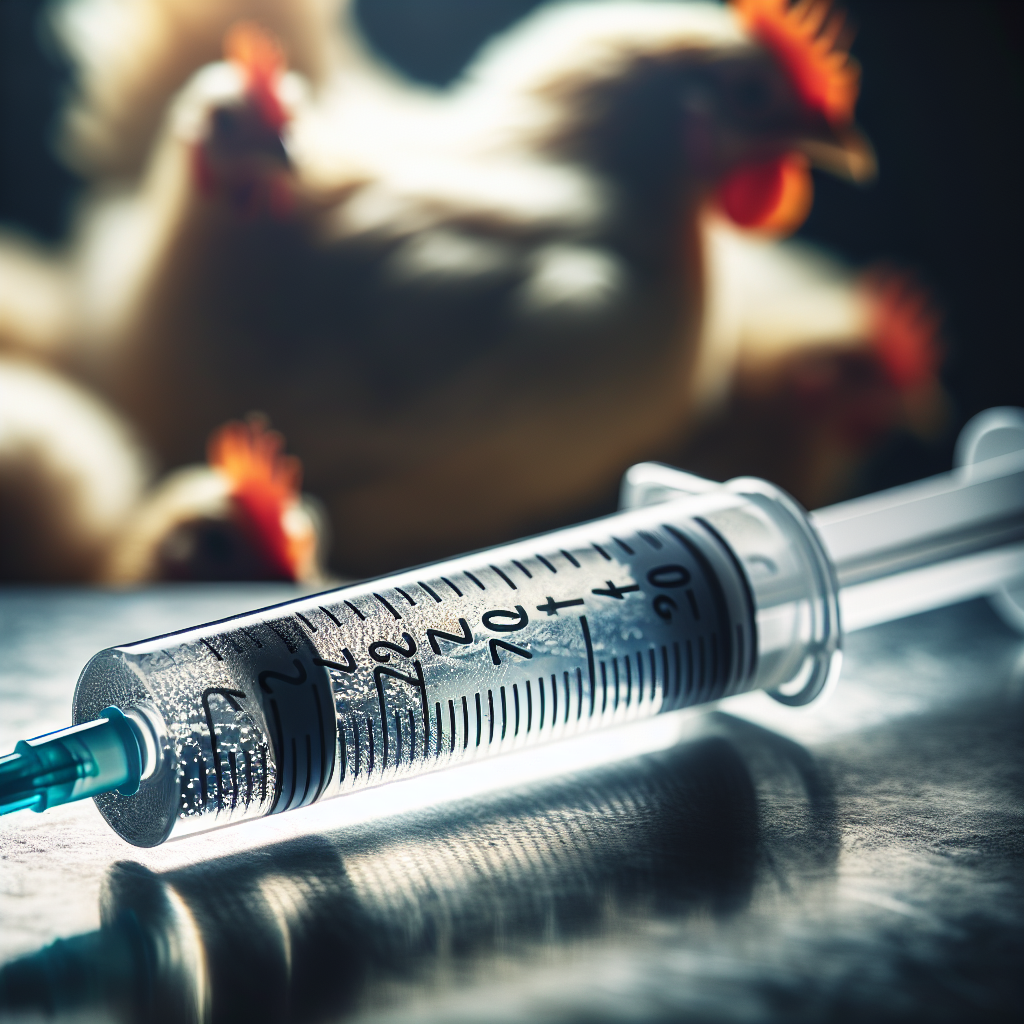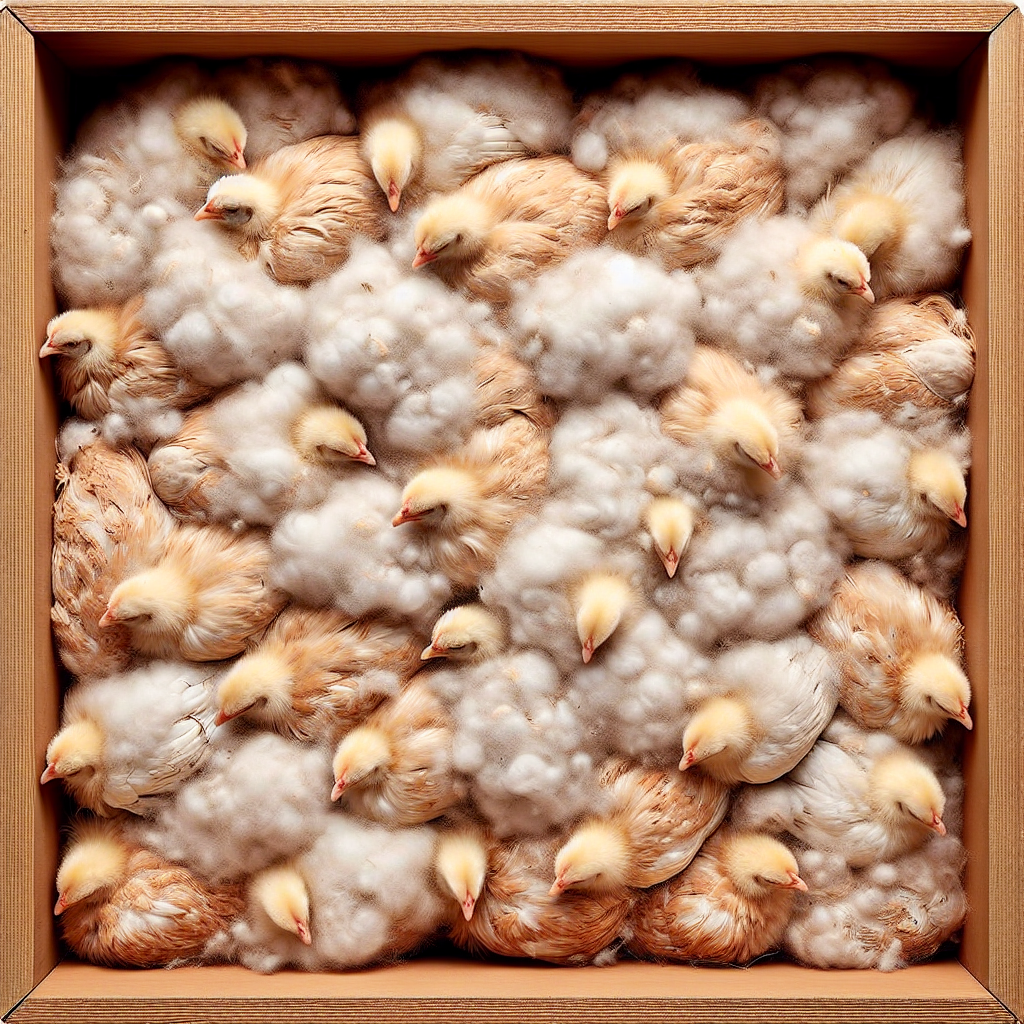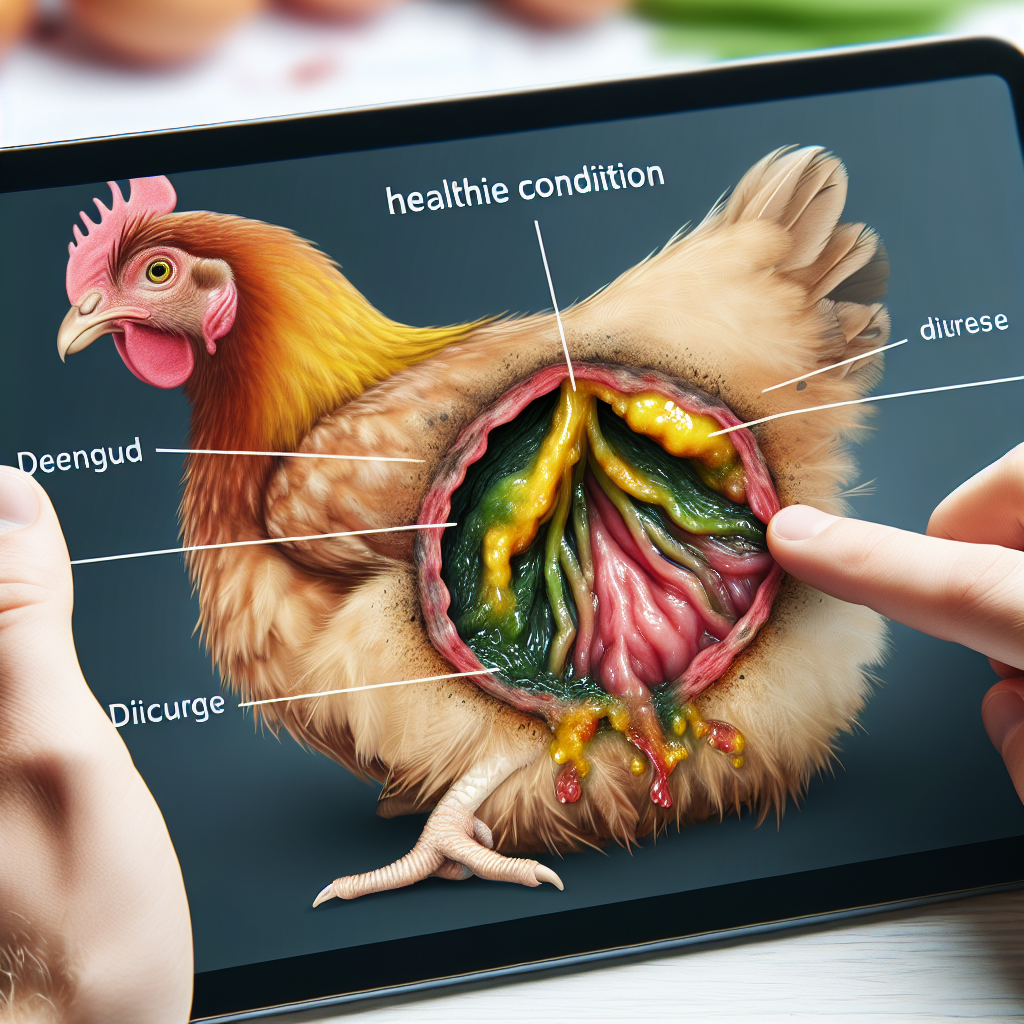Have you ever wondered how to spot and treat nutritional deficiencies in chickens that can lead to diseases? Nutritional imbalances can have a significant impact on the health and well-being of your feathered friends, but with a little insight, you can ensure they receive the proper nourishment they need. In this article, we will explore some telltale signs of nutritional deficiencies in chickens and discuss effective strategies for addressing them. So, if you want to keep your flock happy and disease-free, read on to discover how you can recognize and address these nutritional deficiencies.
Recognizing Nutritional Deficiencies in Chickens
Chickens, just like any living organism, require proper nutrition to grow, develop, and maintain good health. However, sometimes they may suffer from nutritional deficiencies that can lead to various diseases and health issues. By understanding how to recognize these deficiencies, you can take the necessary steps to address them and ensure the optimal health of your chickens.
Observing Physical Symptoms
One of the most effective ways to recognize nutritional deficiencies in chickens is by observing their physical symptoms. These symptoms can vary depending on the specific deficiency, but some common signs include poor feather condition, slow growth, weakness, reduced appetite, or even lameness. Additionally, if you notice abnormalities in their beaks, legs, or skeletal structure, it may also indicate a nutritional deficiency. Regularly inspecting your chickens and noting any unusual physical changes can help you identify potential deficiencies early on.
Monitoring Growth and Development
Another important aspect of recognizing nutritional deficiencies in chickens is monitoring their growth and development. Comparing the growth rates of your chickens to standard breed expectations can help you identify any potential issues. If you notice that your chickens are not growing at the expected rate or are experiencing stunted growth, it could be a sign of a nutritional deficiency. Similarly, monitoring the development of chicks, including their ability to stand, walk, and fly, can also provide insights into their overall health and nutritional status.
Analyzing Egg Production
For those raising chickens for egg production, monitoring egg production can be an essential tool for recognizing nutritional deficiencies. If your hens are experiencing a decline in egg production or laying fewer eggs, it could indicate a nutritional imbalance. Additionally, abnormal egg quality, such as thin-shelled or misshapen eggs, may also be a result of inadequate nutrition. Regularly tracking and analyzing egg production patterns can help you identify and address any potential deficiencies in their diet.
Common Nutritional Deficiencies in Chickens
Now that we understand how to recognize nutritional deficiencies in chickens, let’s explore some of the most common deficiencies that can affect their health and well-being.
Protein Deficiency
Protein is a vital nutrient for chickens and plays a crucial role in their growth, development, and overall health. A deficiency in protein can lead to poor feather quality, reduced muscle development, slow growth, and even reproductive issues. To prevent protein deficiency, ensure that your chickens’ diet includes quality protein sources such as soybean meal, fish meal, or insect-based proteins.
Vitamin Deficiencies
Vitamins are essential for various physiological processes in chickens, and deficiencies can have severe consequences. Vitamin A deficiency, for example, can lead to poor vision, respiratory problems, and impaired immune function. Vitamin D deficiency may result in weak bones and skeletal deformities. Vitamin E and B vitamin deficiencies can cause muscular dystrophy and reproductive disorders, respectively. To prevent vitamin deficiencies, provide a balanced diet that includes a variety of fresh fruits, vegetables, and vitamin supplements specifically formulated for chickens.
Mineral Deficiencies
Minerals are critical for the proper functioning of a chicken’s body and deficiencies can result in a range of health problems. Calcium deficiency, for instance, can lead to weak or thin-shelled eggs, while phosphorus deficiency can cause decreased appetite and poor growth. Other common mineral deficiencies include sodium, potassium, magnesium, and selenium. To ensure sufficient mineral intake, incorporate mineral-rich ingredients in their diet or provide mineral supplements as recommended by a poultry nutritionist.
Essential Fatty Acid Deficiency
Essential fatty acids, such as omega-3 and omega-6, are crucial for optimal health in chickens. A deficiency in these fatty acids can result in poor feather quality, dry skin, reduced immune function, and impaired growth. Supplementing their diet with sources of essential fatty acids, such as flaxseed or fish oil, can help prevent deficiencies and promote overall well-being.
Water Deficiency
Though often overlooked, water is a vital nutrient for chickens, and its deficiency can have serious consequences. Dehydration can lead to reduced egg production, decreased feed intake, and even death in severe cases. Ensure a constant supply of fresh and clean water for your chickens, particularly during hot weather or high-stress situations.
Addressing Nutritional Deficiencies in Chickens
Once you have identified a nutritional deficiency in your chickens, it is crucial to take prompt action to address the issue and restore their health and vitality.
Balanced Feed Formulation
Creating a balanced feed formulation is essential for meeting your chickens’ nutritional needs. Work with a poultry nutritionist to develop a diet that provides the necessary levels of protein, vitamins, minerals, and other essential nutrients. A carefully formulated feed will help prevent deficiencies and promote optimal health.
Supplementation with Nutrient-Rich Food
In addition to a balanced feed, providing nutrient-rich food supplements can help address specific deficiencies. For example, if your chickens are lacking in calcium, you can offer crushed oyster shells or eggshells as a calcium supplement. Likewise, for vitamin deficiencies, you can provide fresh greens or specific vitamin supplements.
Providing Fresh and Clean Water
As mentioned earlier, water is a vital nutrient for chickens, so ensuring a constant supply of fresh and clean water is crucial. Regularly check water sources to ensure they are free from debris and contaminants. During hot weather, consider adding electrolytes to their water to help prevent dehydration and maintain hydration.
Proper Storage and Handling of Feed
To maintain the nutritional value of the feed, it is essential to store and handle it properly. Store feed in a cool, dry place that is free from pests and rodents. Avoid exposure to sunlight and damp conditions, as they can lead to nutrient degradation. Also, practice good hygiene when handling feed to minimize the risk of contamination.
Avoiding Overfeeding or Underfeeding
It is important to provide your chickens with the right amount of feed to prevent both overfeeding and underfeeding. Follow the recommended feeding guidelines based on their age, breed, and production stage. Regularly monitor their feed intake to ensure they are eating enough but not excessively.
Consulting a Poultry Nutritionist or Veterinarian
If you are unsure about addressing nutritional deficiencies in your chickens or if the symptoms persist despite your efforts, it is advisable to seek professional advice. A poultry nutritionist or veterinarian can conduct a thorough assessment, recommend appropriate dietary adjustments, and prescribe necessary supplements or medications.
Preventive Measures to Maintain Optimal Nutrition
While addressing nutritional deficiencies is crucial, it is always better to prevent them from occurring in the first place. By implementing preventive measures, you can maintain optimal nutrition in your chickens and promote their overall health and well-being.
Ensuring a Varied and Nutrient-Rich Diet
Offering a varied and nutrient-rich diet is essential for preventing nutritional deficiencies. Include a variety of grains, seeds, fruits, vegetables, and protein sources in their diet. This diversity will help ensure they receive a wide range of essential nutrients for their overall health.
Regularly Testing Feed Quality
Periodically testing the quality of your chicken feed can help identify any potential nutrient imbalances or deficiencies. Partner with a reliable laboratory or consult a poultry nutritionist to analyze the nutrient content of your feed. Regular testing will allow you to adjust the formulation as needed and ensure your chickens are receiving the necessary nutrition.
Optimizing Feeding Practices
Implementing optimal feeding practices can promote better nutrient absorption and utilization in chickens. Provide a consistent feeding schedule, ensuring feed is always available but not excessively. Additionally, practice proper feeder management to minimize feed wastage and contamination. Consistency and cleanliness can greatly contribute to maintaining optimal nutrition.
Paying Attention to Dietary Changes
Changes in dietary factors, such as switching to a different feed brand or introducing new ingredients, can potentially impact your chickens’ nutritional balance. Monitor their response to dietary changes, and if any health issues or deficiencies arise, adjust the diet accordingly. Gradual dietary transitions can help minimize stress and provide a smoother adjustment.
Creating a Stress-Free Environment
Stress can have a significant impact on a chicken’s overall health and nutritional status. Ensure your chickens are provided with a stress-free environment by minimizing exposure to excessive noise, predators, extreme weather conditions, or overcrowding. A calm and comfortable environment will promote optimal nutrition and overall well-being.
Effects of Nutritional Deficiencies on Chicken Health
Understanding the effects of nutritional deficiencies on chicken health is crucial in emphasizing the importance of maintaining optimal nutrition in your flock.
Impaired Growth and Development
Nutritional deficiencies can significantly impact the growth and development of chickens. Slow growth, stunted development, and underdeveloped muscles and skeletal structures are common signs of nutritional deficiencies. Ensuring a balanced diet will support their growth and development, ultimately leading to healthier and more productive chickens.
Reduced Egg Production
For those raising chickens for egg production, nutritional deficiencies can result in reduced egg production. Nutrients like calcium, vitamin D, and other key vitamins and minerals play a vital role in eggshell quality and the overall reproductive health of hens. By providing a well-balanced diet, you can optimize egg production and maintain consistent egg quality.
Feather Problems and Dermatitis
Nutritional deficiencies can manifest as poor feather quality or feather-related issues in chickens. Feathers may become dull, brittle, or damaged, leading to feather loss or improper growth. Deficiencies in certain vitamins and minerals, such as biotin or zinc, can contribute to these feather problems. A well-balanced diet will provide the necessary nutrients to support healthy feather growth and overall feather condition.
Weakened Immune System
Adequate nutrition is vital for maintaining a strong and healthy immune system in chickens. Nutritional deficiencies, particularly those related to vitamins and minerals, can weaken their immune response, making them more susceptible to infections and diseases. By providing a well-balanced diet, you can support their immune system and reduce the risk of illness.
Muscle Weakness and Skeletal Disorders
Protein deficiencies, as well as imbalances in key minerals like calcium and phosphorus, can lead to muscle weakness and skeletal disorders in chickens. These deficiencies can result in reduced mobility, lameness, or deformities in bones or joints. Balancing the diet with appropriate protein and mineral sources will promote healthy muscle and skeletal development, ensuring your chickens’ overall mobility and well-being.
Reproductive Disorders
Nutritional deficiencies can also have a significant impact on the reproductive health of chickens. Lack of essential nutrients, especially vitamins and minerals, can lead to issues such as poor egg quality, decreased fertility, and Hatch of weak or deformed chicks. Adequate nutrition will support their reproductive systems, resulting in higher fertility rates, better hatchability, and overall healthier offspring.
Protein Deficiency in Chickens
Symptoms of Protein Deficiency
Protein deficiency in chickens can manifest in various ways. Common symptoms include poor feather quality, slow growth, decreased muscle development, and reproductive issues. Chickens suffering from protein deficiency may have feathers that are dull, brittle, or easily damaged. Their growth may be stunted, and they may display reduced appetite or signs of weakness. In breeding chickens, protein deficiency can result in low hatchability rates and poor reproductive performances.
Causes of Protein Deficiency
Protein deficiencies in chickens can occur due to several reasons. Poor-quality feed with low protein content, lack of access to sufficient protein sources (such as insects or high-quality plant proteins), or imbalanced feed formulations can all contribute to protein deficiencies. Additionally, stress, disease, or parasitic infestations may increase protein requirements, making chickens more susceptible to deficiencies.
Treatment and Prevention
Treating protein deficiencies in chickens involves adjusting their diet to ensure adequate protein intake. Consult a poultry nutritionist to develop a balanced feed formulation that provides the necessary protein levels for your chickens’ specific needs. Incorporate high-quality protein sources such as soybean meal, fish meal, or insect-based proteins. Regularly monitor their growth and development to ensure the protein deficiency is resolved. To prevent protein deficiency, maintain a consistent and balanced diet and address any potential stressors or disease outbreaks promptly.
Vitamin Deficiencies in Chickens
Types of Vitamin Deficiencies
Vitamin deficiencies can occur in various forms depending on the specific vitamin lacking in a chicken’s diet. Some common vitamin deficiencies in chickens include vitamin A deficiency, vitamin D deficiency, vitamin E deficiency, and B vitamin deficiencies. Each deficiency has its own set of symptoms and consequences, highlighting the importance of a well-balanced and vitamin-rich diet.
Symptoms and Consequences
Symptoms of vitamin deficiencies can manifest in different ways. Vitamin A deficiency can lead to poor vision, respiratory problems, reduced egg production, or even blindness in severe cases. Vitamin D deficiency can cause weakened bones, skeletal deformities, or decreased calcium absorption. Vitamin E deficiency may result in muscular dystrophy, causing muscle weakness and impaired movement. B vitamin deficiencies can lead to poor feather quality, appetite loss, nervous system disorders, or reproductive issues.
Sources of Vitamins in Chicken Feed
Providing a diet that includes vitamin-rich ingredients is crucial for preventing vitamin deficiencies in chickens. Fresh fruits and vegetables, green leafy plants, and certain grains are excellent sources of vitamins. Additionally, there are specialized vitamin supplements available in the market that can be added to the feed to ensure sufficient vitamin intake.
Supplementation and Prevention
Supplementing the diet with vitamins can help prevent deficiencies and promote optimal health in chickens. Consult a poultry nutritionist to determine the specific vitamin requirements for your flock. They can recommend appropriate vitamin supplements or adjustments to the feed formulation to ensure your chickens receive the necessary vitamins. Regularly monitor their health, growth, and egg production to assess the effectiveness of the supplementation and make any necessary adjustments.
Mineral Deficiencies in Chickens
Common Mineral Deficiencies
Mineral deficiencies can have significant impacts on the health and well-being of chickens. Some common mineral deficiencies include calcium deficiency, phosphorus deficiency, sodium deficiency, potassium deficiency, magnesium deficiency, and selenium deficiency. Each deficiency can lead to specific health issues, underscoring the importance of maintaining proper mineral balance in their diet.
Recognizing Symptoms
Recognizing the symptoms of mineral deficiencies in chickens is crucial for prompt diagnosis and treatment. Calcium deficiency, for instance, can result in weak or thin-shelled eggs, leg weakness, or decreased egg production. Phosphorus deficiency may cause reduced appetite, poor growth, or weakened bones. Lack of sodium and potassium can lead to decreased feed intake and reduced egg production. Magnesium deficiency can result in nervous system disorders or impaired muscle function. Selenium deficiency can cause white muscle disease, leading to muscle weakness or lameness.
Mineral Sources and Supplementation
To address mineral deficiencies, it is important to provide mineral-rich ingredients in your chickens’ diet. Calcium sources can include crushed oyster shells, limestone, or calcium-rich plant additives. Phosphorus can be provided through bone meal or phosphorus supplements. Sodium and potassium can be obtained from salt or mineral mixes. Magnesium sources include legumes, green plants, or specific mineral supplements. Selenium can be supplemented through selenium-enriched feed or mineral supplements. Consult a poultry nutritionist to ensure the proper dosages and sources for each mineral deficiency.
Preventive Measures
Preventing mineral deficiencies in chickens starts with formulating a well-balanced feed that includes an appropriate balance of minerals. Regularly test your feed for nutrient content to ensure proper mineral ratios. Monitor your chickens’ health and growth to detect any symptoms of mineral deficiencies early on. Adjust their diet or provide mineral supplementation as recommended by a poultry nutritionist.
Essential Fatty Acid Deficiency in Chickens
Signs of Essential Fatty Acid Deficiency
Essential fatty acid deficiency in chickens can result in various signs and symptoms. Chickens may display poor feather quality, dry or flaky skin, decreased egg production, or impaired growth. Their feathers may become dull, brittle, or prone to breakage. Dry and flaky skin can lead to discomfort and reduced overall health. Egg production may be affected due to compromised reproductive health. Additionally, chickens suffering from essential fatty acid deficiency may exhibit signs of poor growth or slower development compared to their counterparts.
Causes and Consequences
Essential fatty acid deficiency in chickens can be caused by a diet lacking in essential fatty acid sources. These fatty acids, such as omega-3 and omega-6, cannot be synthesized by the chickens’ bodies and must be obtained through their diet. Inadequate intake of these essential fatty acids can result in the aforementioned signs and consequences. Essential fatty acids play critical roles in maintaining healthy skin, promoting feather growth, supporting reproductive health, and ensuring proper growth and development.
Addressing Fatty Acid Deficiency
To address essential fatty acid deficiency in chickens, incorporate sources of these fatty acids in their diet. Flaxseed, fish oil, or other omega-3-rich ingredients are excellent sources of essential fatty acids. Consult a poultry nutritionist to determine the appropriate dosage and ratios of essential fatty acids for your chickens. Regularly monitor their feather condition, skin health, growth, and egg production to assess the effectiveness of the dietary adjustments and make any necessary improvements.
Preventive Measures
Preventing essential fatty acid deficiency starts with providing a diet that includes appropriate sources of essential fatty acids. Ensure a balanced feed formulation that includes ingredients rich in omega-3 and omega-6 fatty acids. Regularly assess their skin, feather quality, and overall health to detect any signs of deficiency early on. Adjust their diet or incorporate additional sources of essential fatty acids as needed.
Water Deficiency in Chickens
Recognizing Dehydration in Chickens
Recognizing the signs of dehydration in chickens is crucial for addressing water deficiency promptly. Chickens suffering from dehydration may display signs such as lethargy, reduced appetite, sunken eyes, dry and pale combs or wattles, and reduced egg production. They may appear weak or unresponsive and may lose weight rapidly. Observing their behavior and physical condition on a regular basis will help you notice any abnormal signs and take appropriate action.
Causes and Effects
Water deficiency in chickens can occur due to several reasons. Insufficient access to water, particularly during hot weather or high-stress situations, can contribute to dehydration. Poor water quality or contaminated water sources can also discourage chickens from drinking adequate amounts. Dehydration can lead to reduced feed intake, poor skin and feather condition, decreased egg production, and even death in severe cases. It is crucial to address water deficiency promptly to prevent these adverse effects.
Ensuring Sufficient Water Supply
To prevent water deficiency in chickens, it is essential to provide a constant supply of fresh and clean water. Ensure that water sources are easily accessible to all chickens in the flock. Monitor water levels regularly and refill as needed. Clean water containers and waterers regularly to prevent contamination. During hot weather or stressful situations, consider adding electrolytes to their water to help replenish minerals lost through sweating.
Preventing Water Deficiency
Preventing water deficiency starts with proper management and regular monitoring of water supply. Ensure that each chicken has enough space to access water without being crowded or restricted. Check water levels multiple times a day, especially during hot weather or high-stress times. Clean water containers and waterers regularly to prevent bacterial growth. Providing multiple water sources throughout the coop or run can ensure ample access to water, even during peak demand periods.
In conclusion, recognizing and addressing nutritional deficiencies in chickens is essential for maintaining their optimal health and well-being. By observing physical symptoms, monitoring growth and development, and analyzing egg production, you can identify potential deficiencies. Common deficiencies include protein deficiency, vitamin deficiencies, mineral deficiencies, essential fatty acid deficiency, and water deficiency. Addressing these deficiencies requires balanced feed formulations, nutrient-rich food supplementation, access to fresh and clean water, proper storage and handling of feed, and consulting professionals when necessary. Preventive measures include ensuring a varied and nutrient-rich diet, regularly testing feed quality, optimizing feeding practices, paying attention to dietary changes, and creating a stress-free environment. By taking these steps, you can provide your chickens with the nutrition they need to thrive and minimize the risk of diseases caused by nutritional deficiencies.




